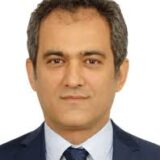In a statement issued for the commencement of the 2016–2017 academic year, President Recep Tayyip Erdoğan emphasized the importance of closing the gaps in the education system, saying, “Turkey ought to close the gaps exploited by treacherous gangs in the education system and move on.” One of the most critical gaps in the Turkish education system has been the decades-long negligence of the demand for higher education. This issue takes the lead among others that have been skillfully exploited by the Fetullah Gülen Terror Organization (FETO) thus far. Myriads of prep schools for university entrance exams, an unlimited number of private K–12 schools, and 15 higher education foundation institutions have had connections with FETÖ. This basically constitutes the reason for the failure to meet – in one way or another and to a reasonable extent – the higher education demands in Turkey, which have led to a competitive education system. Hence, if we have any intention to close the “gaps exploited by the treacherous gangs,” then we must undertake level-headed analysis of higher education that goes beyond the ordinary.In Turkey, we frequently hear a narrative for higher-education-related discussions. In short: the growth of Turkish higher education, particularly in the last decade, has been misguided, and the growth has lowered the quality of education in higher education institutions; therefore, it should be stopped.
Recommended
Social Demand and the Quality Issue
No matter what is said, comparisons between Turkey and other countries clearly show that Turkey has neglected the higher education demands of its young people for decades. The existing higher education institutions have, for different reasons, resisted the increase in demand. Therefore, one way or the other, the demand has not been met.
To fulfill the tremendous demand for higher education, the political establishment has committed to opening new higher education institutions, in the 2000s in particular. Hence, the policy of expansion in higher education is based on an extremely rational foundation and this policy in itself is not problematic. In fact, it has already yielded positive results. The numbers of higher education institutions and students have soared and the enrollment percentage in higher education has increased owing to such growth. In addition, female access to higher education has also improved; in particular, the enrollment percentage of females has outpaced that of males in recent years.
Despite the above positive developments, however, the increase in the number of faculty members in the Turkish higher education system is not sufficient to support such growth. As a result, the number of students per faculty member has increased, resulting in negative impacts on both the quality of education and research capacity in Turkey.
One of the most critical points in the quality issue is the number of faculty members with doctoral degrees, coupled with the quality of doctoral education. So, although the growth in higher education is not problematic, increasing the number of qualified PhD holders, in order to achieve sustainable growth, is an urgent issue in the Turkish higher education system.
The Doctoral Issue in the World and in Turkey
Every country has its own unique perspective of doctoral graduates depending on its own state of affairs. While one country achieves growth in its higher education system or economy and makes plans to increase growth; another may try to stabilize the number of postgraduates. For instance, China is one of the two world leaders in terms of the annual number of PhD graduates across all disciplines, with some 50,000 PhD holders per year. The yearly average number of doctoral graduates in all disciplines grew by 40% between 1998 and 2006. This has led to discussions regarding the quality issue in China due to the rapid growth in the number of PhD holders. Despite the discussions, however, doctoral graduates easily find jobs both in industry and higher education institutions.
In Germany, the number of PhD holders per year amounts to approximately 25,000, as the country tries to stabilize this figure as much as possible. In other countries, such as the UK and the US, the number of doctoral graduates increases beyond their own market demands due to demand from foreign students studying in these countries. It is becoming more difficult for PhD holders to take academic positions in the US. For instance, only 12.8% of PhD holders in engineering secure academic positions. Consequently, PhD holders tend to have post-doc positions, and decision makers tend not to intervene in the situation as the competitive environment offers the opportunity to employ more qualified human resources in a less expensive way. Albeit 40–50% of doctoral candidates in North America never graduate, enrollment in advanced research programs increased by approximately 70% in the US and Canada between 1998 and 2012, according to an OECD report.
As for Turkey, the same problems were voiced in the report entitled “Views on the Status of PhD Education in Turkey” (Turkish Academy of Sciences (TÜBA), 2006). In the years covered by the report, the number of master students increased from 92,862 to 417,084, and the number of PhD students from 27,393 to 86,094 in the 2015–2016 academic year. Again, the number of PhD graduates per year increased from 2,000–2,500 to 4,500–5,000 to date. However, the number of graduates has not increased as expected, despite the remarkable jump in the numbers of graduate students and faculty members. The quality of doctoral education, too, is another issue we must dwell upon. According to the same report, one or two faculty members graduated one master’s student as 10 or 11 faculty members graduated one PhD student in 2004. The data for the academic year 2013–2014 reveals that the same characteristic is seen in master’s programs, i.e. one or two faculty members graduated one master’s student, but the situation worsened for PhD programs (13 or 14 faculty members graduated one PhD student). In short, most higher education institutions hire PhD holders, but they fail to provide the supply to meet their own demands.
PhD Education must be Examined
The data on graduate enrollment in doctoral programs indicates that the demand for PhDs has increased in Turkey, as in other countries. Negative developments, according to the above data in the given years, signal that the structural problems of the past still remain, that they have grown, and that, no matter how much the input (enrollment) increases, the output (graduation) is alarmingly low.
For this reason, qualified field research on current PhD programs, and PhD students in particular, are needed. Prospective findings of such research and relevant processes must be reviewed and urgent preventive measures must be taken. To this end, the recently launched YÖK project involving 2,000 PhD students who have scholarships in 100 different disciplines is promising. While arrangements to eliminate existing problems are being made, Turkish higher education definitely needs such new promising projects. In fact, this is not only the problem of the YÖK and universities; it is also a national issue. Therefore, the Ministry of Science, Industry and Technology, the Scientific and Technological Research Council of Turkey (TÜBİTAK), and TÜBA must all be involved actively in the process and develop solutions together. Enhancements will enable sustainability of the growth in higher education as they will help to fill the gaps in the education system.





